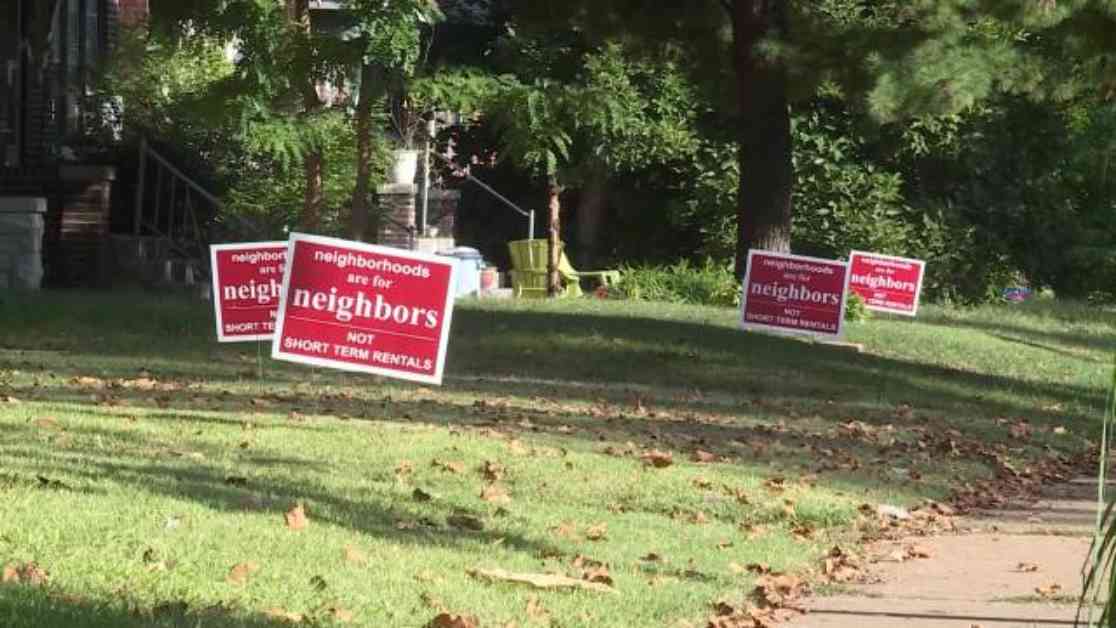New regulations in St. Louis are set to shake up the short-term rental market starting November 6th. These new rules, introduced under Ordinance 71729, will impact property owners by placing limits on the number and type of rentals allowed in certain residential buildings.
For smaller buildings with up to four units, only half of the units can be designated as short-term rentals. Larger buildings will have even stricter caps, limiting rentals to a certain percentage of units. Additionally, individual owners will now be capped at managing a maximum of four non-owner-occupied rentals across the city.
Amanda McCracken, a short-term rental owner, voiced her concerns about how these occupancy limits could negatively affect their business. She highlighted that the restrictions may hinder their ability to accommodate larger groups, potentially impacting profitability.
Despite the challenges posed by the new regulations, many short-term rental owners are hopeful that the city will reconsider its stance on occupancy limits and collaborate on finding solutions. While there is some confusion surrounding the changes, there is overall support for weeding out irresponsible operators in the market.
McCracken commended the city for its efforts to eliminate bad actors in the industry, noting that this will create a better environment for responsible short-term rental owners to thrive. Existing owners have until May 6, 2025, to either apply for permits or transition their units to long-term rentals.
Applications for permits will be available starting November 6th. If you want more information on the ordinance, you can visit the official website for details. FOX 2 reached out to Mayor Tishuara Jones’ office for comment but has not received a response yet.
The changes in St. Louis are part of a broader trend across many cities to regulate the short-term rental market. The rise of platforms like Airbnb and Vrbo has led to concerns about the impact of short-term rentals on neighborhoods, housing availability, and affordability.
Some cities have implemented strict regulations to address these concerns, including limits on the number of rental units and occupancy restrictions. While these regulations may pose challenges for short-term rental owners, they are intended to strike a balance between allowing the sharing economy to thrive and protecting the interests of residents and communities.
It is essential for short-term rental owners to stay informed about local regulations and compliance requirements to ensure they can continue operating their businesses successfully. By working together with city officials and stakeholders, it is possible to find solutions that benefit both the industry and the community as a whole.


